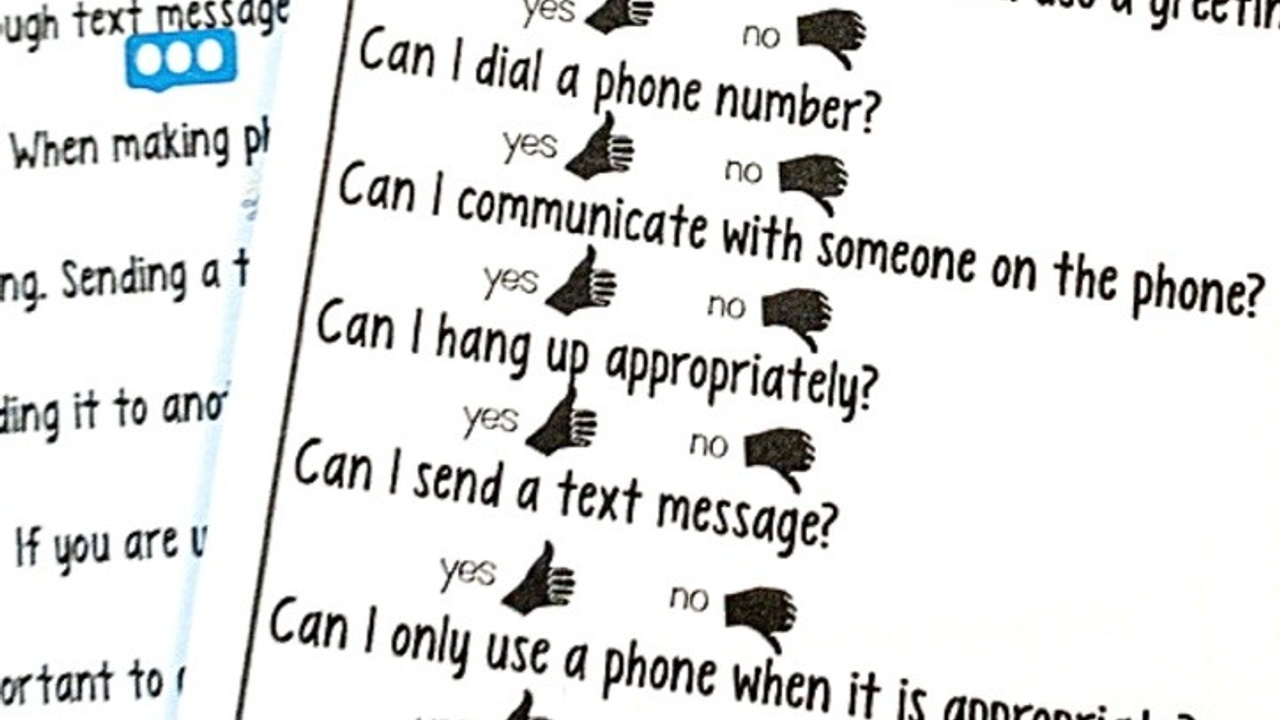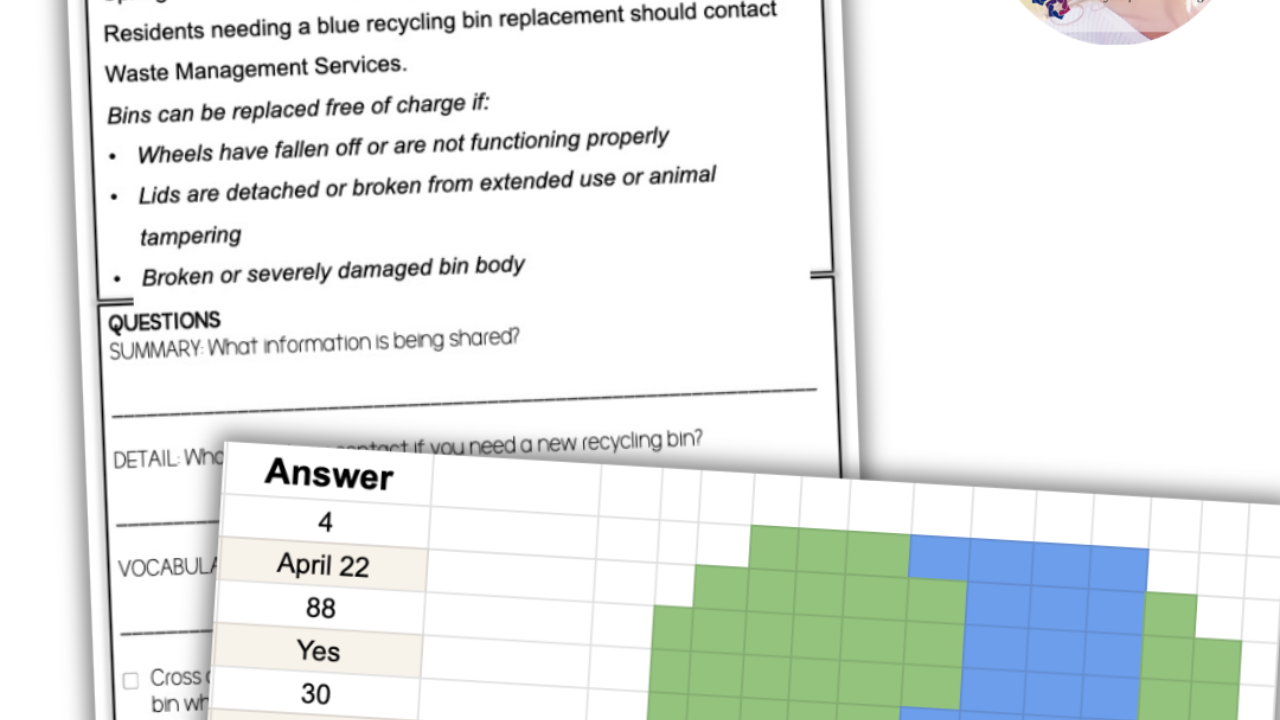How To Teach: Phone Skills
Dec 13, 2021
Importance of Phone Skills
Answering and talking on the phone may be a life line in the case of an emergency. Making a phone call may be necessary to set-up a doctor's appointment. Texting may be the best way to communicate with a manager or supervisor. Phone skills are important for our students to learn as the features of phones continue to expand.
-Why a phone rings
-What to say when you pick up a phone
-What to say after you answer a phone call
-What phone numbers to ignore and why
-Appropriate text etiquette
-Who and when it is appropriate to text
-Sending appropriate photos, videos, and text messages
Why Focus On These Skills
While a landline might be outdated, a cell phone isn’t. Even for students who don’t have a personal cell phone, their family and friends do and they should know how to properly use and respond to phone calls and text messages.
When To Teach
Phone skills can never be taught too early or too late, so drop this lesson into your schedule whenever it fits.
If possible, you may want to teach this topic around the same time you teach safety, advocacy, and problem solving, as there are many overarching skills amongst these lessons.
I’ve created a complete lesson unit of materials for teaching this topic. The materials are comprehensive (5 full lessons) and most appropriate for life skill lessons at the middle school, high school and transition level students. Below are some lesson unit highlights!
Students will contact someone via phone or text with expected and appropriate communication.
Students will answer/make a phone call that meets a purpose.
Lesson Vocabulary
Answer, call, hang-up, make, number, permission, phone, positive, ring, text
-
Pre and Post assessment
-
1 page narrative explaining the skill with and without visual text supports (to incorporate functional reading)
-
5 skill practice activities to learn and/or reinforce the focus skills
-
Game for students to practice their skills (because learning is fun)
-
Boom Cards for practice or assessment
-
Student learning reflection worksheet (thumbs up or down)
-
Encouraging on-topic quotes (use as a classroom poster or starter for each class period)
-
5 strategies for success (tips for being successful with the focus skills)
-
Coloring page with on-topic graphics
-
Skill mastery certificate for positive recognition and reinforcement
-
Data collection sheet on specific focus skills
-
Homework sheet to encourage students to practice the skill outside of the school setting
-
Word search of key vocabulary terms
-
Visuals for focus skills with age appropriate colors and graphics
Ultimate Goal
My brain goes to the parent/guardian/families worst case scenario, if an emergency happened how would my student answer the phone or make a phone call? If the phone rings, a student needs to know to pick up the phone and say hello. Having worked on this skill with students, I know that isn’t always their reaction. No matter if your student has a personal cell phone or not, knowing how and when to answer a phone call and what to say next is the ultimate goal for all students!
Link to Curriculum


















